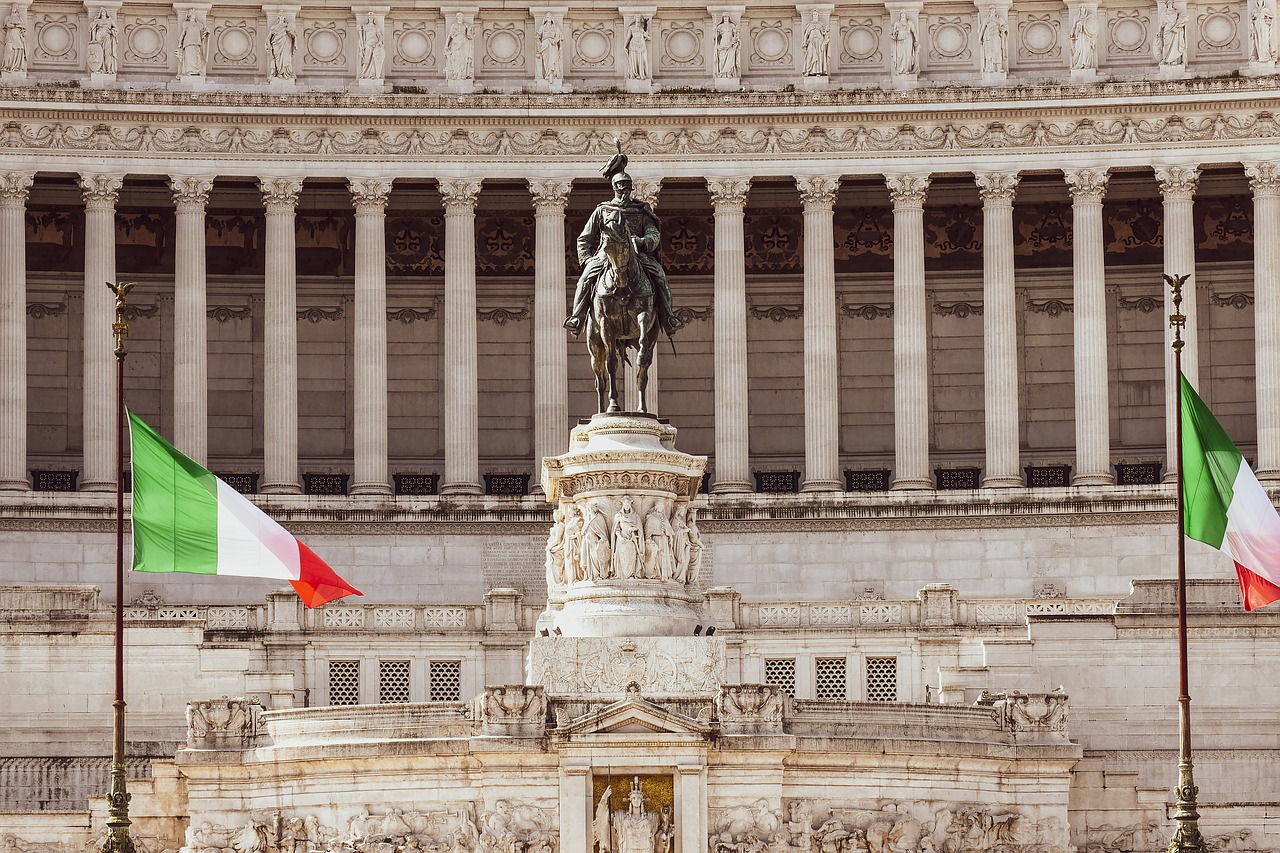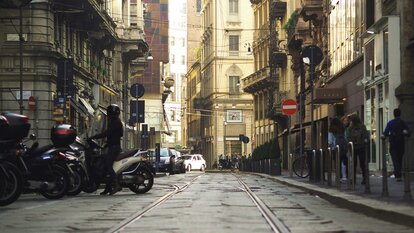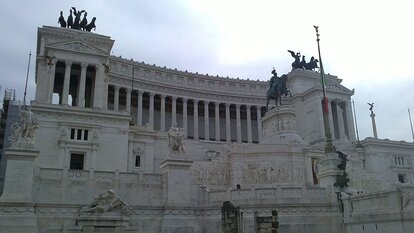Italy
After Italian elections: A glimpse of hope from Rome, and Italy.

On October 3rd and 4th, Italians went to vote in local elections for around 1.200 mayors. A runoff, when necessary, was held last weekend.
The political landscape before the election was rather uneven. Despite the wide majority supporting the national Government, presided by premier minister Mario Draghi, which ranges from the populist 5 Stars Movement to the populist League and in the midst the Free and Equal, Democratic Party, +Europe, Azione, Italia Viva, Forza Italia - the single parties took part to the local elections through various coalitions.
In the bigger cities like Rome, Milan, Turin, Naples or Bologna the principal, candidates were supported by different parties. For example in Naples and Bologna, center left candidates were supported by a huge coalition spreading from 5 Stars Movement to moderate center parties: in both cities the center left candidate won in first round[1]. In Milan, the incumbent mayor Giuseppe Sala, an independent politician close to the Democratic Party, was reelected in the first ballot with a broad majority. Due to the fact that the 5 Stars Movement took part at the election with its own candidate, Sala was supported by a narrow coalition and even by Matteo Renzi’s movement Italia Viva, Azione and +Europe, which allied in a Reformers list. In Turin, the center left candidate was supported by the same coalition supporting Sala in Milan, while the 5 Stars Movement, which (ill)administered the city during last term, was trying to compete with a fresh candidate.

By and large, the recent local election had a low turnout: less than 50% of voters went to polls. The 5 Star Movement is shrinking, and this can be considered good news for Italy: having proved themselves in charge of national government and local administration seems to be enough.
But the most interesting scenario was the one depicted in Rome, the most significant city, not just because it is the Capital of the Republic. In 2016, Ms Virginia Raggi, a totally unknown member of the 5 Stars Movement, became mayor of Rome gaining her success from the general disappointment of the establishment parties after the resignation of the former mayor Ignazio Marino (back then a prominent figure of Democratic Party). Raggi’s success, along with Chiara Appendino, who is another sample of unknown politician from the 5 Star Movement, which became in the same election mayor of Turin, heralded the following 5 Star Movement’s success in the parliamentary elections held on March 2018.
Raggi’s administration was one of the worst of Rome’s history since the time of Ernesto Nathan[2]: the umpteenth proof of a complete lack of experience and skills of 5 Star Movement representatives. The last days of Raggi’s administration are gloomily depicted by pictures of a herd of wild boars strolling through Rome’s streets.
But despite such a demonstration of ill-administration, the Democratic Party sought an alliance with the 5 Stars Movement. This plan subsided only when it was clear that Ms Raggi should have been the candidate: at that point the Democrats decided to nominate their own candidate, the former Economics Minister Roberto Gualtieri.
Those negotiations had their cost: trying to reach an agreement barred any chance to support Carlo Calenda as candidate. Calenda, former Minister for Economic Development and a staunch reformer, was a strong critic of the alliance between Democratic Party and 5 Stars Movement, since the time of the second government leaded by former prime minister Giuseppe Conte.

Calenda was the first candidate to run for mayor of Rome, offering the Democratic Party the chance to support him, at one simple – and sensible – condition: he would have been the candidate of Italian reformers, explicitly against both, right wing populists such as the League and Brothers of Italy (a far right party) and undefined populists such as the 5 Stars Movement.
As soon as it became clear that the Democratic Party still is determined to establish a structural alliance with the 5 Stars Movement, Calenda decided to run for the elections on his own, with a single list. Calenda campaigned for almost a year, spreading his ideas how to manage a complex city like Rome. He proclaimed himself a social liberal and, despite some inconsistencies, some say that he would be a good fit for the future role of a prospective leader of a liberal, reformers and pro-European movement in Italy.
Calenda’s list reached almost 20% of the votes; Calenda in the end arrived third in the mayor elections, behind Gualtieri (which won the runoff), Michetti, the candidate of the center right coalition, but ahead of Raggi.
This should be a first step in order to unite all the liberal and reformers spread across Italy and political spectrum. If Calenda would reach such a result he could push the Democratic Party to leave the 5 Stars Movement to its fate, and marginalize them to opposition. After all it not by chance that Calenda, along with the liberal parties +Europe and Italia Viva, is one of the strongest supporters of Mario Draghi as Prime Minister. Draghi was a godsent, when he replaced Giuseppe Conte, broadening the parliamentary majority supporting the cabinet. He is managing well the Coronavirus pandemic and the Recovery Plan; helping Italian economy to recover. The International Monetary Fund said in a statement in October that Italy’s GDP is expected to grow by 5,8% this year, 0,9 of a percentage point more than the forecast in July. The IMF said Italy’s public debt should drop to 154,8% of GDP in 2021 from 155,8% in 2020 and then fall to 150,4% in 2022 and 146,5% in 2026.
The main risk for the long path to recovery are the current Italian main parties: on January 2022 Italian parliament will appoint a new President of the Republic. It seems that Draghi could be a choice. For Italy’s sake that should not be the choice. It would be another example of the old roman tenet: promoveatur ut amoveatur (promote him in order to remove him). Italy desperately needs Draghi as Prime Minister as long as he is able to do the job. And after him, Italy needs to stay on the same path Draghi has undergone. To secure this, Calenda and all the same parties around him (+Europe, Italia Viva and maybe the most liberal figures in Forza Italia) should move from Rome to the whole Italy. This could force the Democratic Party to let aside the incomprehensible alliance with the 5 Stars Movement, and helping to promote a coalition of consistent reformers.
[1] According to Italian local election law, cities with more than 15 thousand citizens elect their mayor at first round if the candidate reach a majority of at least 50% plus one of votes. Whenever neither candidate reaches such a threshold, the two most voted candidates are going to face a runoff vote.
